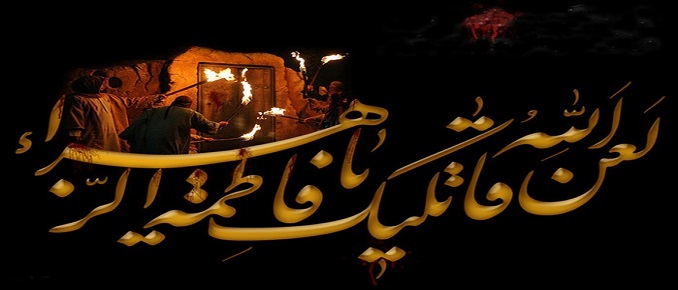
When it comes to cursing the tormentors of Ahle Bait (a.s.) (called Tabarra in religious lingo), there is usually a lot of argument and debate on toning down the pitch, not using names, not cursing openly, in fact and not cursing at all to keep unity among the Muslims.
There is also loose talk on how the Aale Muhammad (a.s.) never encouraged cursing of the companions and wives and prohibited open and evident Tabarra due to dissimulation.
While there are many answers to such baseless objections, we bring an incident that completely smashes the objections against Tabarra from all aspects.
Bashshaar al-Mukaari relates: I had the honour to be in the presence of Imam Sadiq (a.s.) in Kufa. Imam (a.s.) was eating dates. When I entered, he (a.s.) said: Bashshaar sit with me and eat dates.
I said: May I be sacrificed for you! On the way I witnessed a sight that pained my heart severely and I am unable to eat due to the uneasiness.
Imam (a.s.): What did you see on the way?
I said: On the way I saw a government official beating a woman on the head and dragging her towards prison. She was wailing loudly for help through the medium of Allah and the Prophet (s.a.w.a.) from everyone, but none offered to help her.
Imam (a.s.): But what was the woman’s crime?
I said: The people were relating that the woman had stumbled on the road and in this condition cried out, ‘May Allah curse the ones who oppressed you, O Fatima!
Imam (a.s.), merely on hearing this, began weeping intensely so much so that his handkerchief and blessed beard and his holy chest were moistened with his tears.
Imam (a.s.) said: Bashshaar! Let us visit Masjid al-Sehlah and pray for the salvation of the woman. In the meantime, also send someone so that he brings news from the court about the woman’s condition.
Bashshaar said: We entered Masjid al-Sehlah and prayed two units of prayers. Imam (a.s.) prayed for the woman’s salvation and went in prostration. He (a.s.) lifted his head from prostration and said: Let us go! They have released her!
We stepped out of the mosque. By then the man who had been sent to inquire about her condition returned and informed Imam (a.s.): They have released her.
Imam (a.s.) asked: How was she freed?
The man said: I do not know but when I went to the court, I saw that the woman had been released from prison. They brought her in front of the ruler. He asked the woman: What have you done that they have arrested you?
The woman narrated the incident. The ruler offered 200 dirhams to that woman (as compensation), but she did not accept. The ruler insisted: Consider us lawful, take this dirham. The woman still did not accept the money. She was nonetheless set free.
Imam (a.s.) asked: She did not take the 200 dirhams?
I said: No, I swear by Allah!
Imam (a.s.) said: Bashshaar! Give these seven dinaar to her because she is in severe need of this money. Also convey my salaam to her.
When I gave the seven dinaar to the woman and conveyed salaam of Imam Sadiq (a.s.), she asked elated: Has Imam (a.s.) sent salaam for me?
I said: Yes
The woman fell unconscious due to sheer joy. When she regained consciousness she repeated: Has Imam (a.s.) sent salaam for me?
I said: Yes! And she asked me this thrice. She requested me to convey her greetings to Imam (a.s.) and to request him (a.s.) to consider her a slave, in need of his (a.s.) supplications.
Thereafter I returned and conveyed the matter to Imam Sadiq (s.a.). Imam (a.s.) on hearing this began weeping and prayed for her.
- Mustadrak al-Wasail vol. 3 p. 419 under the Chapter of recommended prayers in Masjid al-Sehlah and to seek refuge in the Mosque and to supplicate in it in times of grief
- Behaar al-Anwaar vol. 47 pp. 379-380
Points for consideration
- Tabarra is not just permitted but highly recommended else Imam Sadiq (a.s.) and his companions would not go to such lengths to engineer the woman’s release.
- Cursing the tormentors of Aale Muhammad (a.s.) during a stumble or some difficulty is likely to bring release from the difficulty in future
- Even if Tabarra is done openly and reaches the ears of the enemies as it has in this incident, it invites the good wishes and concern of Aale Muhammad (a.s.)
- Aale Muhammad (a.s.) themselves pray for the person and send help in any way possible for the one who has done Tabarra, particularly if the Tabarra lands him in trouble. This is evident from many other incidents like the incident of Abu Raajeh Hamaami who used to openly abuse the usurpers, was thrashed to pulp and left to die until he was rescued with the prayers of Imam Mahdi (a.s.). For details, refer Behaar al-Anwaar vol. 52 p. 70.




Be the first to comment